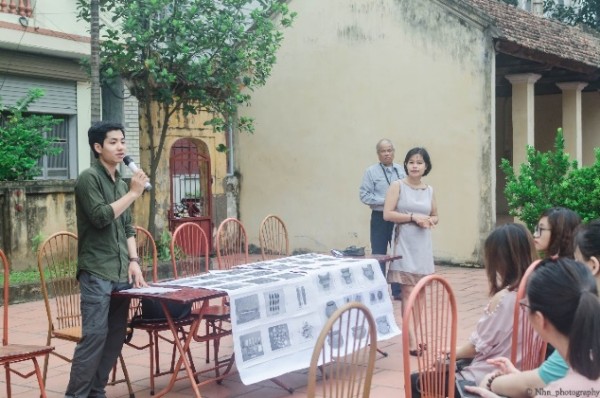Challenges of Vietnamese archaeological heritage management: A Case Study of the Vuon Chuoi site, Hoai Duc, Hanoi | Những thách thức trong quản lý di sản khảo cổ học ở Việt Nam: nghiên cứu từ trường hợp di chỉ khảo cổ học Vườn Chuối, Hoài Đức, Hà Nội
DOI:
https://doi.org/10.26721/spafajournal.v4i0.614Keywords:
Vuon Chuoi, Vietnamese law on cultural heritage, heritage management, the decentralized model Vườn Chuối, Luật di sản văn hóa Việt Nam, quản lý di sản, mô hình phân quyềnAbstract
This paper clarifies and interprets the current problems in Vietnamese heritage management and suggests remedies through the case study at the Vuon Chuoi archaeological site. Through the analysis of the Vietnamese law on cultural heritage as well as examining behaviours of the stakeholders involved in heritage management, three issues that make Vietnamese archaeological heritage management more difficult are defined: (1) the law on cultural heritage is not forceful enough to protect the Vuon Chuoi site under the threat of construction projects; (2) overlapping jurisdictions make the model of cultural heritage in Hanoi inefficient. The authorities responsible for heritage management at all levels have failed to protect the Vuon Chuoi site properly in accordance with the Vietnamese law on cultural heritage and have shown their irresponsibility in the heritage management; and (3) there is a lack of cooperation between stakeholders to balance the need for economic development and the protection of cultural heritage in Vuon Chuoi area.
Bài viết này nhằm mục đích xác định và giải thích một phần các thách thức gặp phải trong quản lý di sản và đề xuất các biện pháp khắc phục thông qua trường hợp nghiên cứu di chỉ khảo cổ Vườn Chuối. Qua phân tích Luật di sản văn hóa, mô hình quản lý di sản của Việt Nam và hành vi của các bên liên quan trong quản lý di sản, có ba thách thức khiến việc quản lý di sản khảo cổ Việt Nam trở nên khó khăn hơn được xác định là: (1) luật di sản văn hóa không đủ mạnh để bảo vệ di chỉ khảo cổ học Vườn Chuối trước sự đe dọa của các dự án xây dựng; (2) sự phân quyền chồng chéo trong quản lý làm cho mô hình di sản văn hóa ở Hà Nội không hiệu quả. Sự thiếu trách nhiệm của các cấp quản lý đã khiến Vườn Chuối nằm ngoài phạm vi bảo vệ của Luật Di sản Văn hóa; và (3) thiếu sự hợp tác giữa các bên liên quan trong việc cân bằng nhu cầu phát triển kinh tế và bảo vệ di sản văn hóa đã đẩy Vườn Chuối đến nguy cơ bị xóa sổ.

Downloads
Published
How to Cite
Issue
Section
License
Copyright (c) 2020 SEAMEO SPAFA and Author

This work is licensed under a Creative Commons Attribution-NonCommercial-NoDerivatives 4.0 International License.



